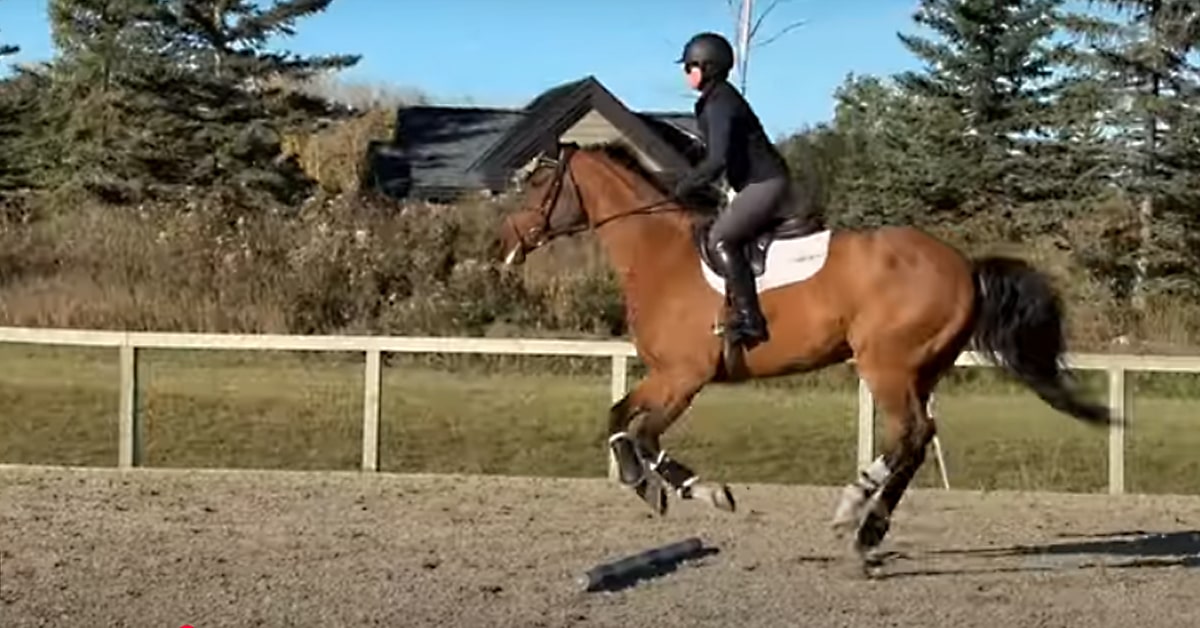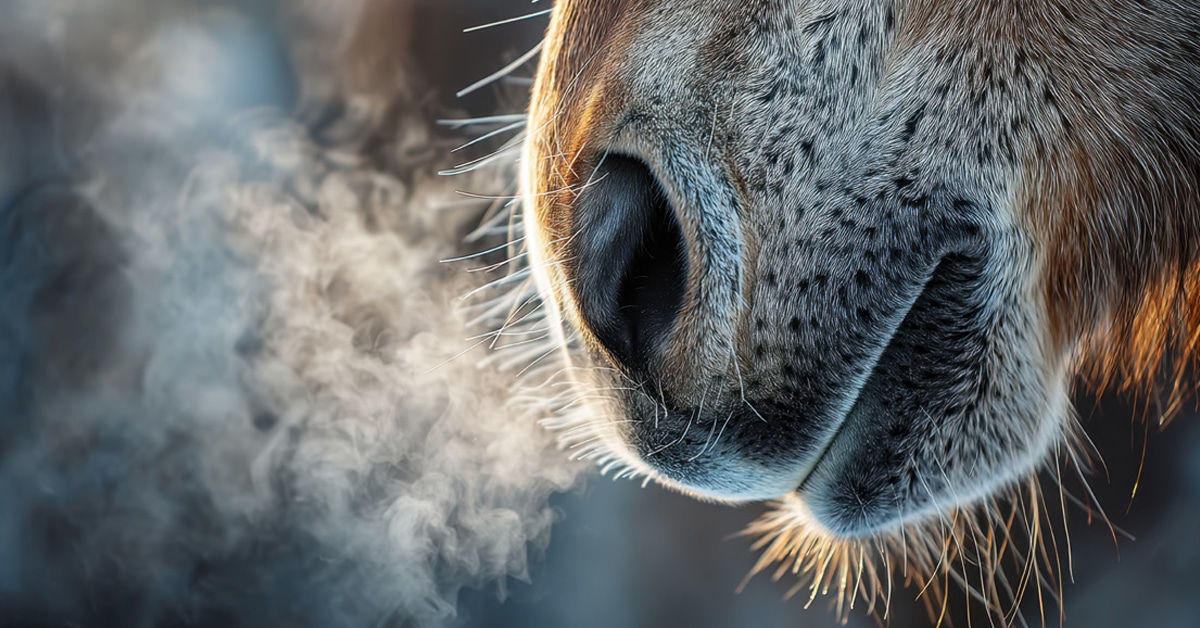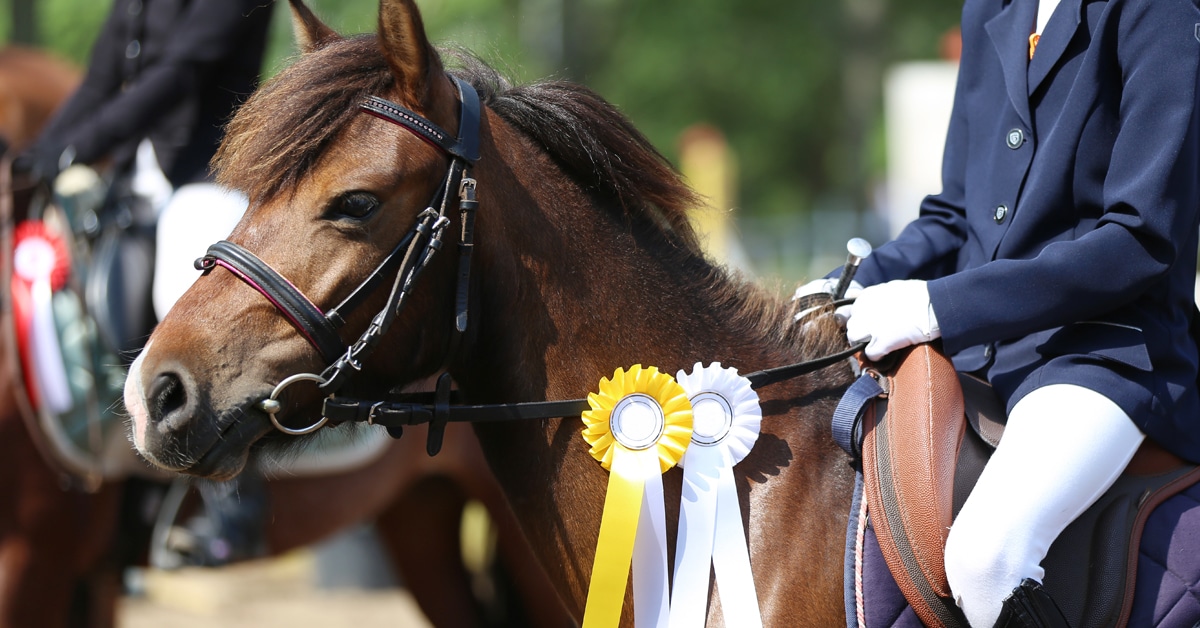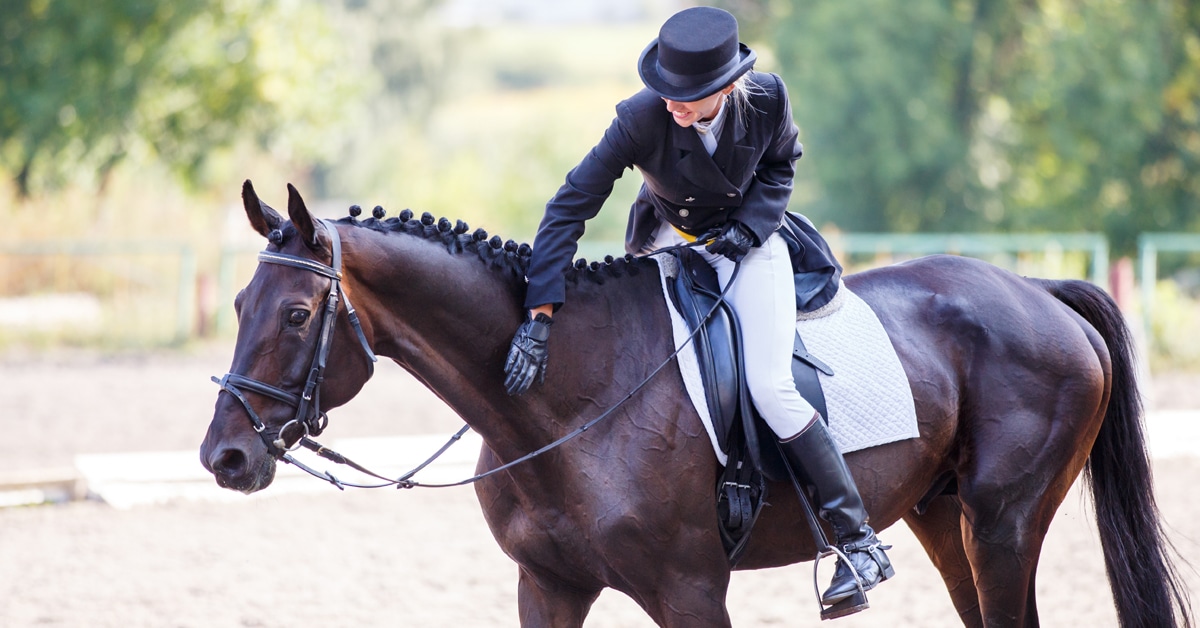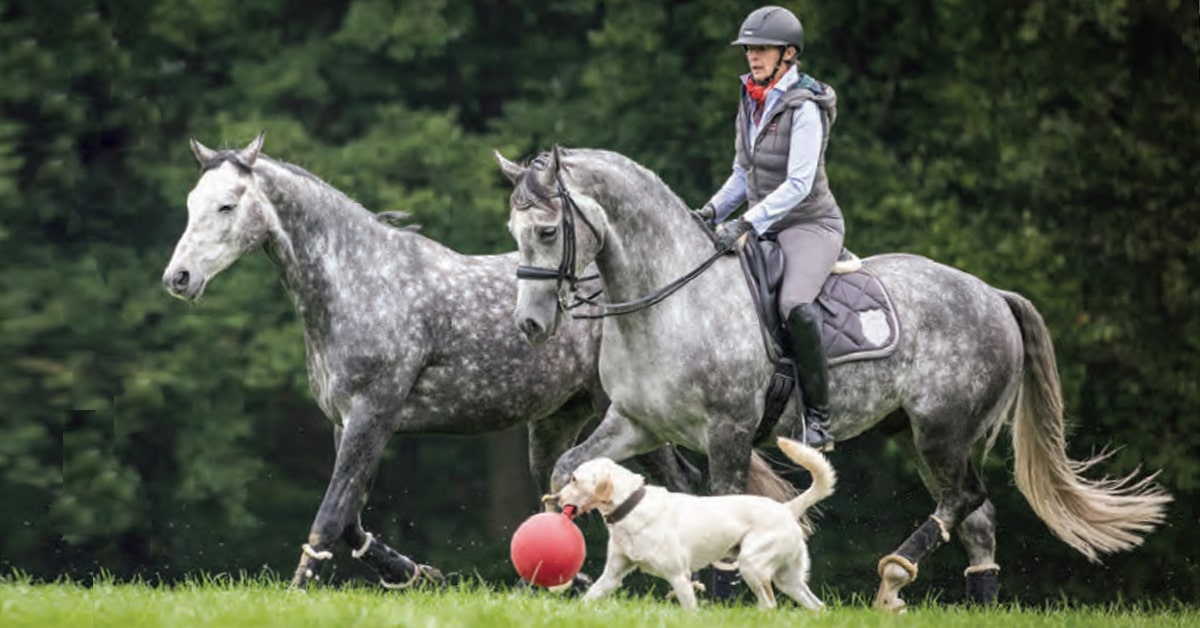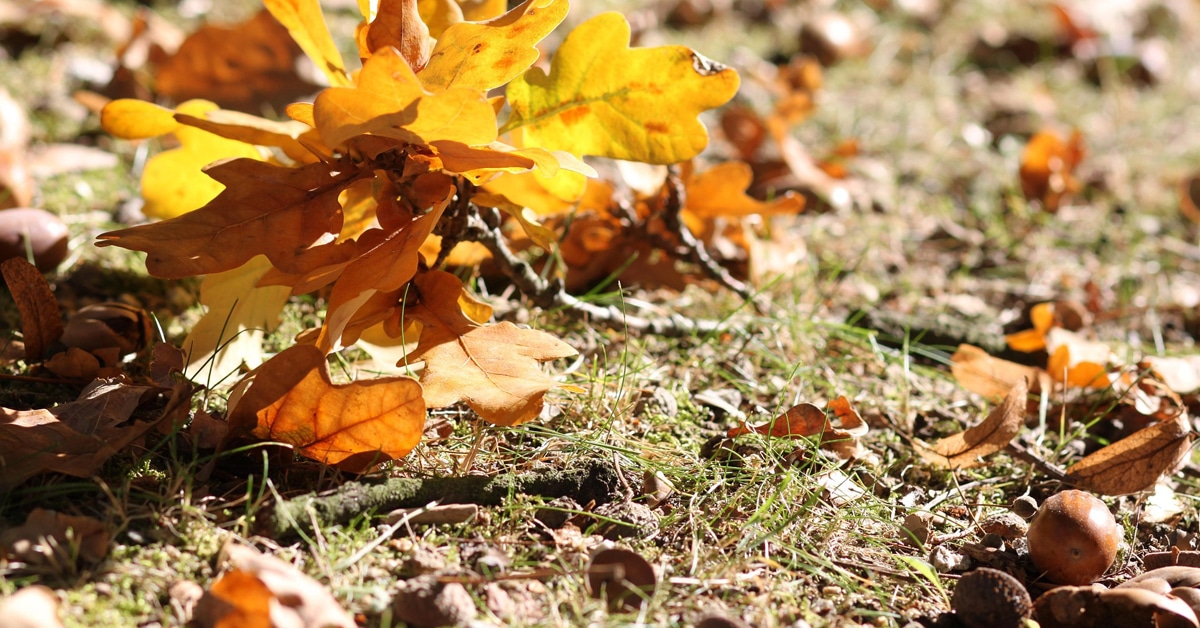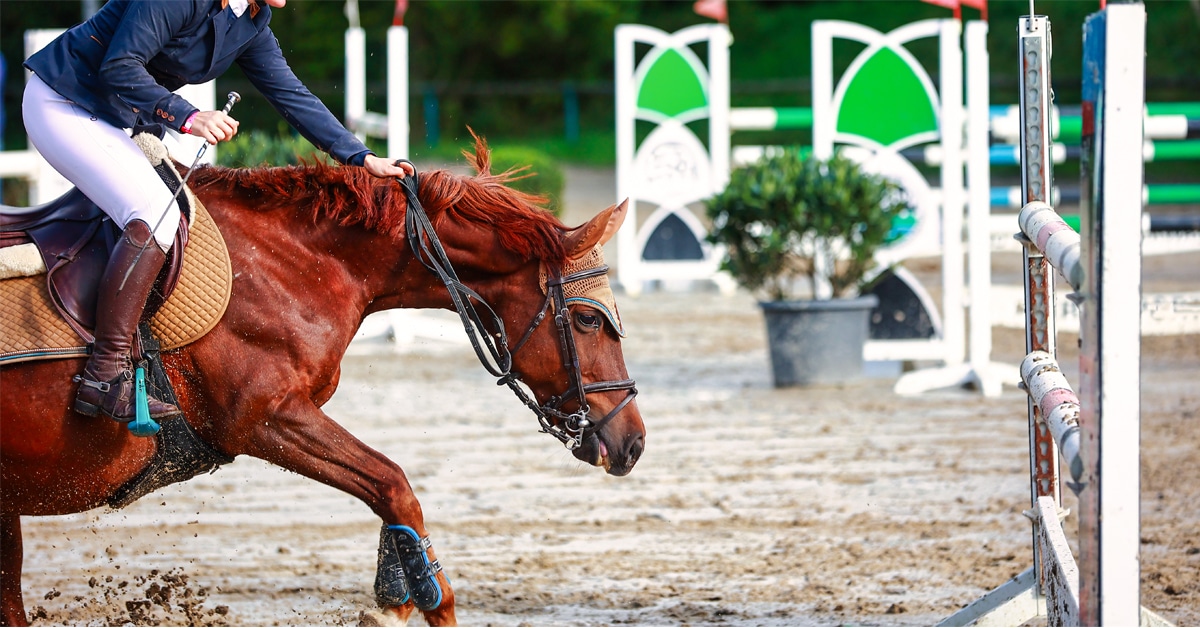Kelly Plitz competed in her first event nearly 40 years ago, and has watched the sport change over the decades, sometimes for the better, sometimes to its detriment. The Olympian, who took her feisty little off-the-track Quarter Horse mare Dialadream to the 1984 Games in Atlanta, shared her thoughts with Horse Sport about where the sport has been, where it is now, and the course it needs to follow.
“I started doing schooling shows and then in the ‘70s went into the hunter/jumpers, but I found it very exclusive,” Plitz said of how her eventing career was launched. “At that time it was just a few families and I didn’t feel welcome. Then I bought Dialadream and went to the Quarter Horse shows, which were quite big up here in the ‘70s. We had Quarterama and Western World – they were huge.”
She eventually got restless, however. “In ‘79 I started eventing. The reason I stopped showing AQHA, even though I was doing quite well, was that I was getting bored of the ‘same old same old’ all the time. I found that with the hunters, too: the same jumps in a different location. I started eventing and found that really exciting and Dialadream excelled in it. It went on from there and I made it my business and Ian and I developed that.” Her husband, Ian Roberts, also an Olympic rider (2004) and Kelly run Dreamcrest Farm in Port Perry, ON, a 100-acre facility established over 30 years ago which has hosted events from entry level through intermediate.
Money, Honey
Plitz noted that the difficulty of attracting newcomers is not limited to eventing, or any equestrian sport. “All the sports are changing. People are complaining that hockey is dropping off because it costs $3,000 a year. Well, it costs $3,000 a month for a horse sport. Back in the day, eventers and even the hunter/jumper people used to buy off-the-track horses or part-bred horses that were inexpensive. Now, there’s a lot more money out there and you’re competing against imported horses, these kids that want to make it to Young Riders, because that’s kind of their Olympics.”
Finding reasonably-priced mounts has become nearly impossible these days. “Ian went to the States to look at Young Rider horses recently. Some were off the track a month and trotting over a crossrail, and they were asking $25,000 American for them! It’s gotten to the point where it’s hard to find horses. That’s a problem.”
Another problem is the lack of upper-level events in this country. “When [my son] Waylon was growing up, we could go to an event every weekend and he was able to develop horses up to the intermediate level and then go to the States to do advanced. We had Checkmate, we had Wits’ End. Americans would come up for those because, to quote Willie Nelson, ‘If you’ve got the money, honey, I’ve got the time.’
“It comes down to the almighty dollar. We don’t have any qualifying events in Ontario any more. There are only one or two intermediate, so you have to go south to develop your horses. People do make an effort to come up for Bromont, because there’s money, it’s a world-class facility, and they can qualify. It’s those three things. The Americans are going to come up for Rob [Stevenson]’s event, too, because of those three things.”
There is often a sharp decline in participation as the keen young riders get older. “It’s mostly little girls – there is the odd little boy – and once they age out of daddy’s house and have to pay the bills themselves, they either don’t do it or they become gypsies and live out of their trailer going down to Ocala. Living hand to mouth; that’s where it’s gone.”
And attracting the growing demographic of the 50-plus rider who is either new or returning to the sport is also tough. “Older people are opting for clinics and things they can do in a group; things they can have fun doing and afford.”
The Fun Factor
Veterans of all equestrian sport are bemoaning the fact that shows are just not as much fun anymore. “There were so many parties,” said Plitz, adding, “It’s still like that in Quebec, though. They have a different mentality. All their shows are two days so that they can stay overnight in their trailers and have a party. And while eventing people I find are still helpful, it is less so now because there are new people who have come in from the hunter/jumper world and they’re less open. It’s not the same rowdy party people that it used to be.”
Even the way kids are introduced to horses now is monitored and structured. “I used to ride my pony everywhere. I remember just roaming, like a loose dog, and it was so much fun,” recalled Plitz fondly. “The kids aren’t learning by falling off any more … and when they do fall off, they’re shocked.”
Years ago people rode pretty much whatever they could get their hands on (there was even a well-known eventing mule), and did everything with them. “People are going back to that a bit; they want a bit more of a buffet [with their riding experiences] than a specialized program. They’re picking and choosing clinics and clinicians: ‘Let’s give that a try this weekend.’”
Look to the West
Plitz has recently picked up a new sport, one that seems to have its act together in terms of attracting participants. “I jumped off the eventing bandwagon and I’m doing reining now. In reining, I’m a non-pro; I don’t have to compete against the pros. I can go into the beginner classes and have fun because I have a chance of getting a ribbon, which is still important at my stage of the game because it shows I’m doing it right.” Plitz is going to take a stab at Western dressage this year as well.
“The Western people and the Quarter Horse people have marketing down to a fine science. You win trailers, you win saddles and belt buckles. The average person can be placed on a Western or English pleasure horse. The trainer can ride it all week and the owner can ride it on the weekend and win a ribbon. You can’t do that in eventing. You have to put the work in yourself.”
Plitz notes that horse people can be very close-minded “breedists” who could learn something from the breed sports. “People need to get over their stereotypes of Western horses. These reining horses are really well-broke and you can pretty much take their bridle off and ride them. They’re light, they’re balanced. People need to open their minds and not think that the way they ride their horse is the only way to ride it. Just because somebody rides in a different type of saddle or has a different breed of horse doesn’t mean they’re an idiot. They actually might know what they’re doing.”
Rules, Rules and More Rules
“Eventing has been changing for a while. There’s no quick fix. One thing that needs to be addressed is that at events and dressage shows the organizers are not allowed to hold schooling-type shows alongside with the recognized shows. They discourage events that aren’t sanctioned, and you’d get more grass roots people if you were able to do that. Our students, for instance, may want to go to our event. But they have to buy all these memberships so it becomes very costly for them just to go to one event. I think that needs to be addressed.
“Rules aren’t written in stone; they can be changed. And I think that they need to be changed in order to save the sport. There’s nothing in Michigan now because they wanted Bob [Willmarth of Richland Park] to jump through so many hoops. It was the powers that be in the US that made him shut down. Ontario is going the same way.”
There is a lot of competition for people’s discretionary income these days, and Plitz feels that if a sport is too difficult to join, too expensive, and you don’t feel welcome when you do get there, then kids are more likely to go take up soccer or tennis – or nothing at all. “There was a heyday and it’s gone,” she warned. “I don’t think there’s a magic bullet. Adapt and change; even if it means changing or getting rid of some of the rules and going back to more of a grass roots thing that we had back in the ‘70s.”
The Latest
